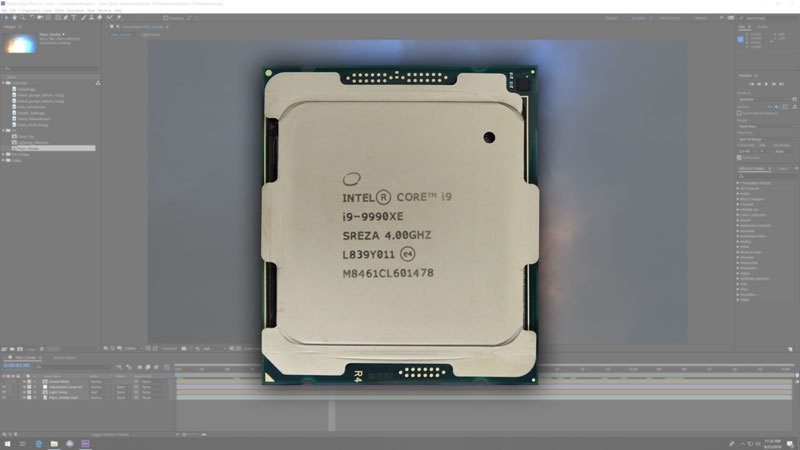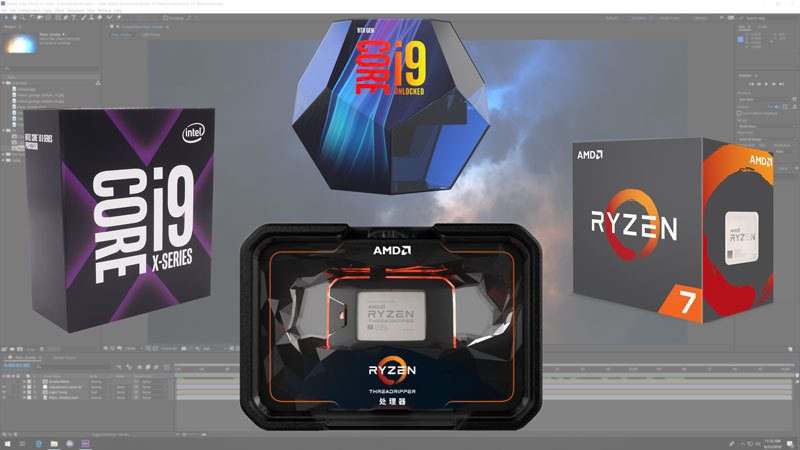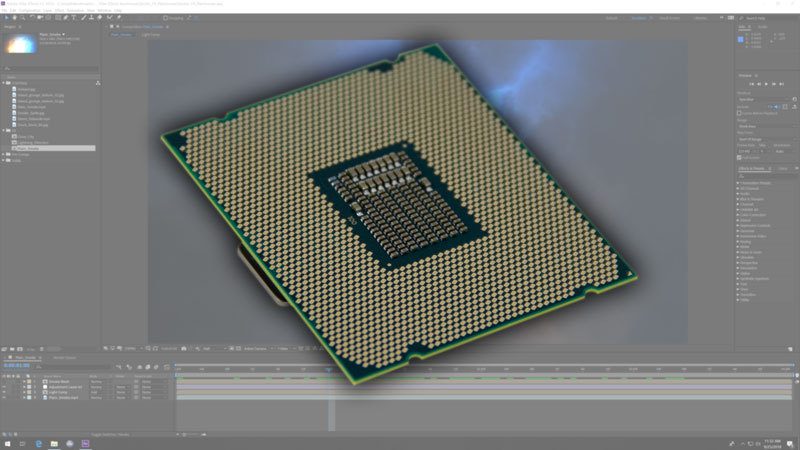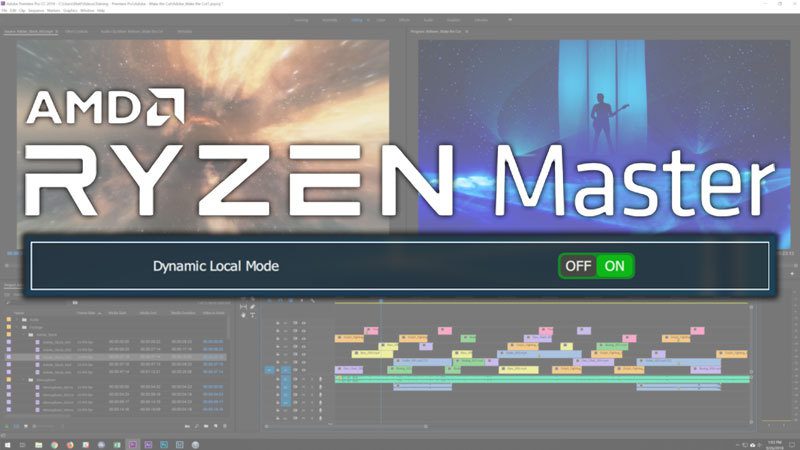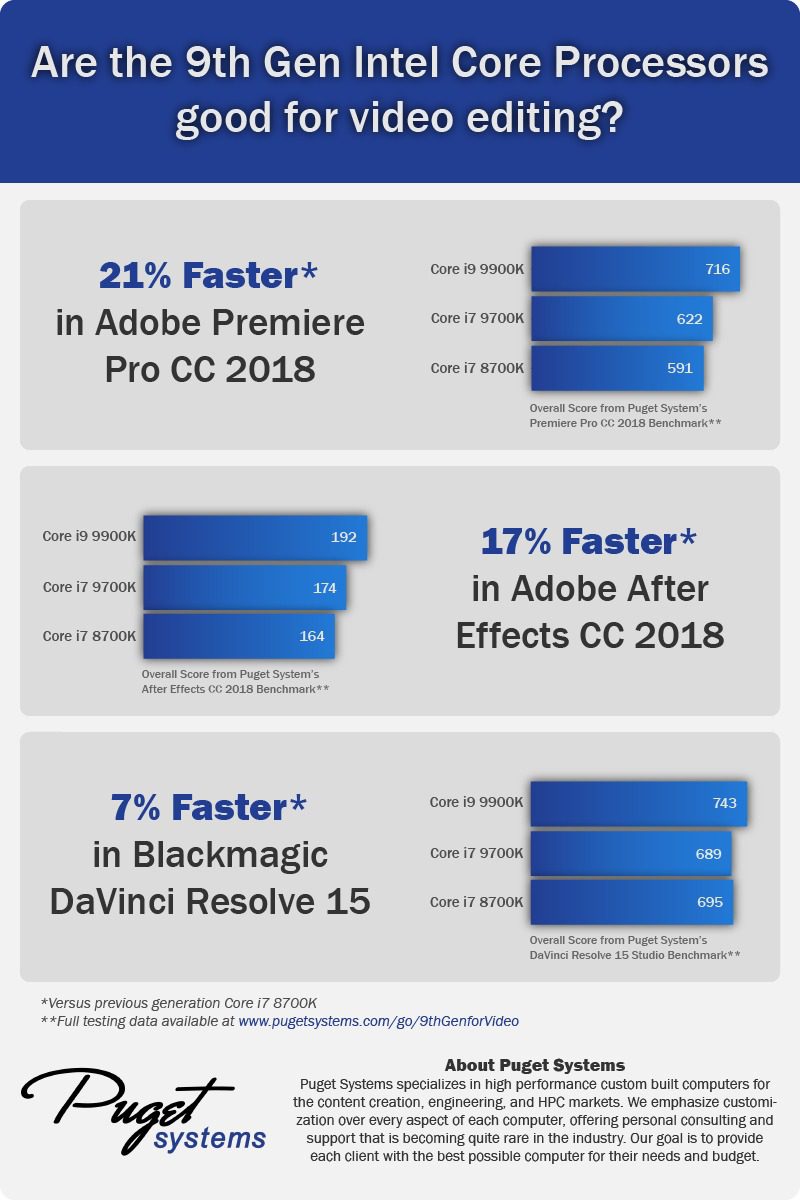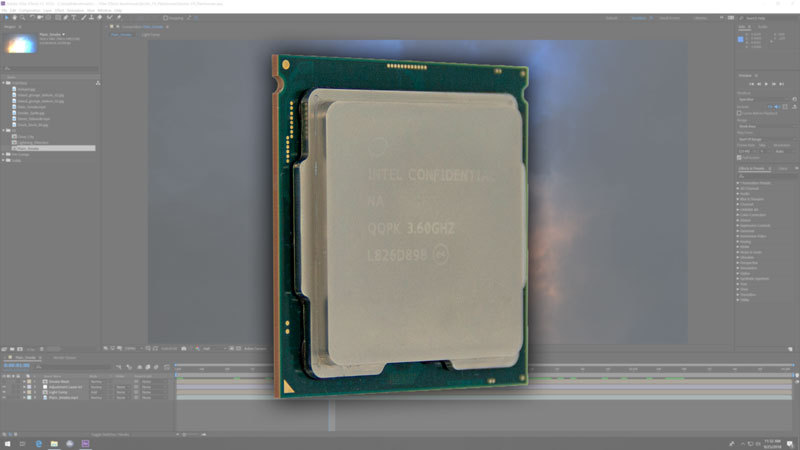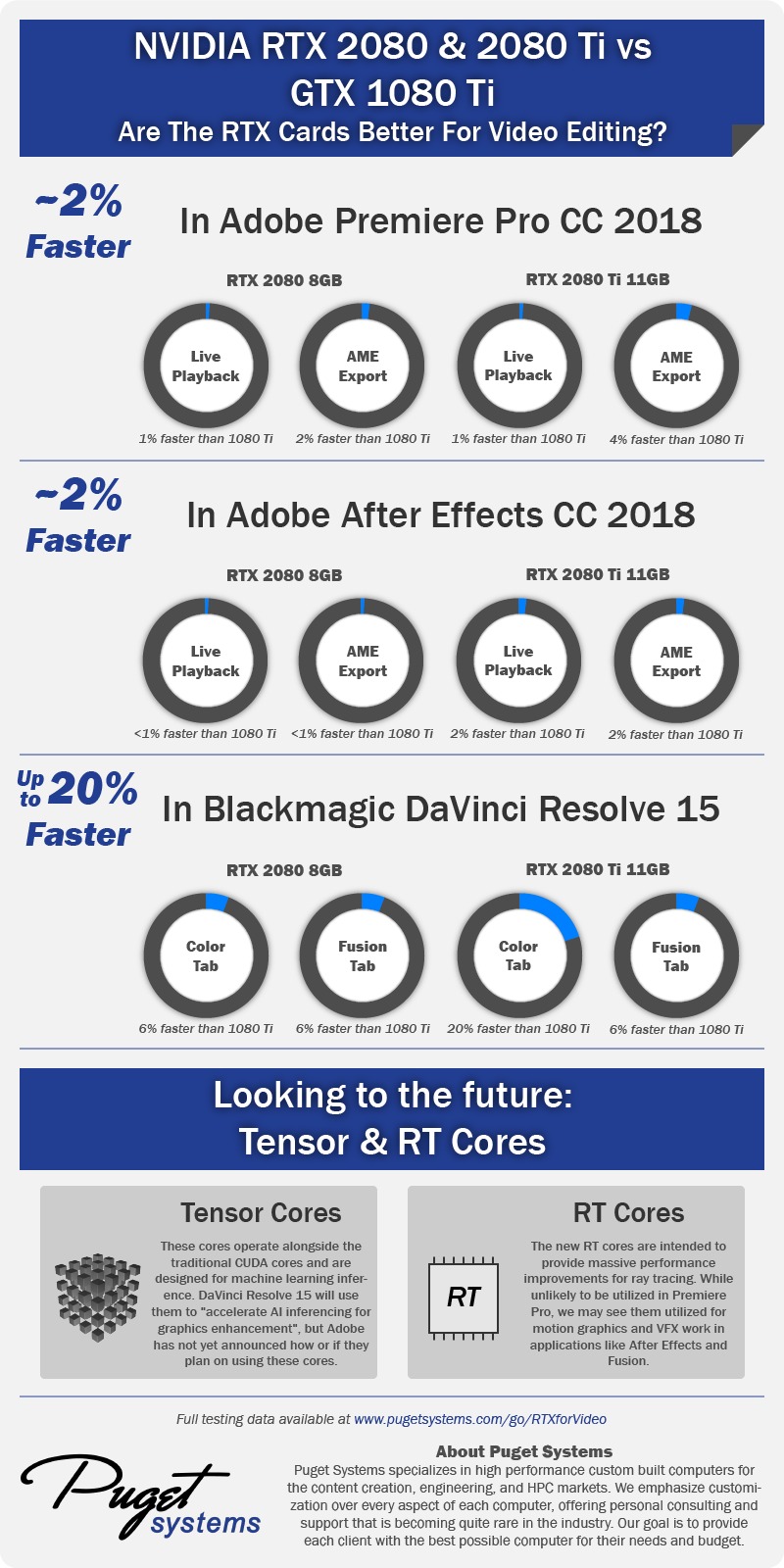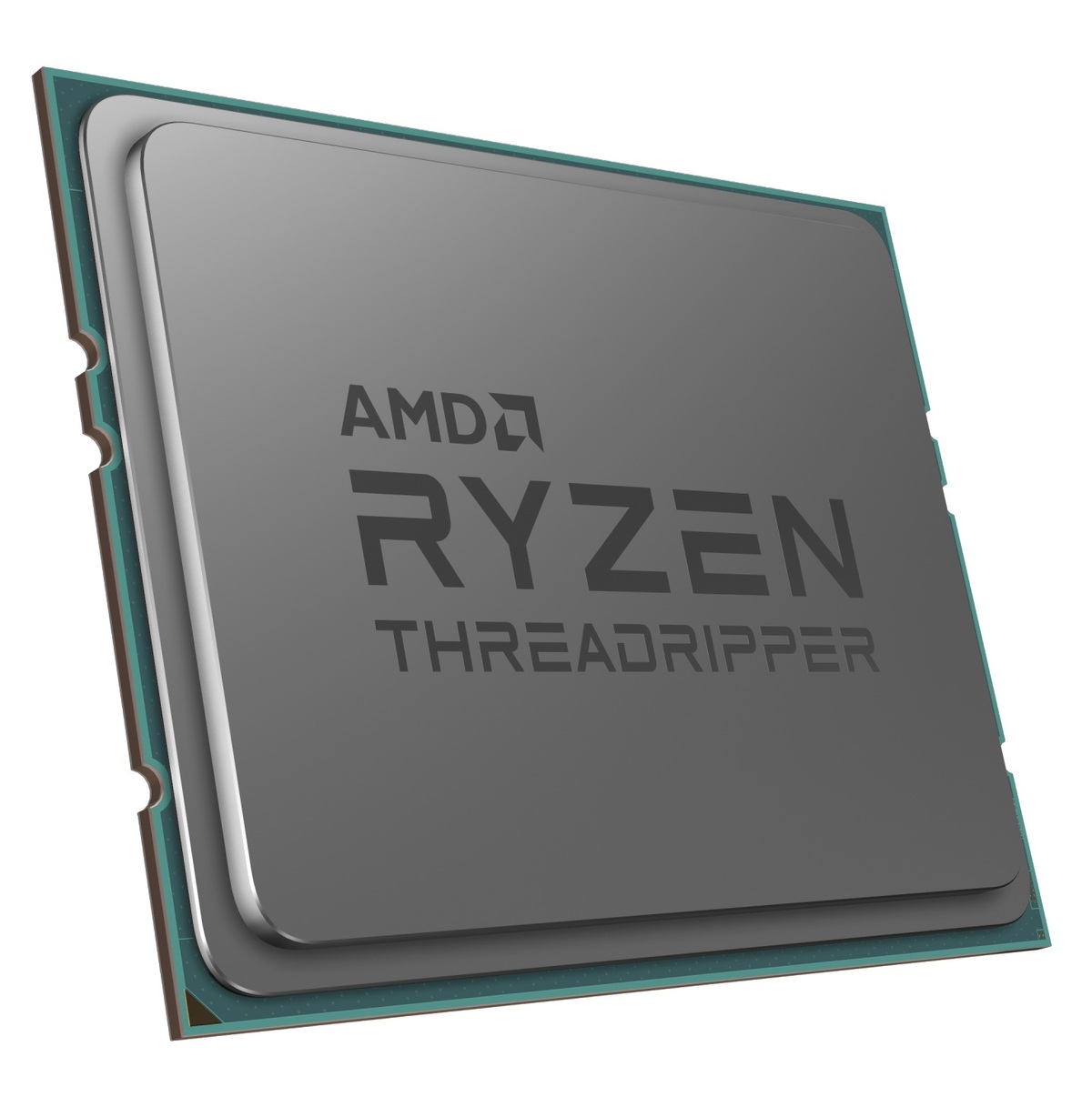The Intel Core i9 9990XE 14-core CPU is a special, OEM-only, no warranty processor that is only available to select system manufacturers like Puget Systems. While it is very hard to get, it should actually be among the fastest CPUs to use for After Effects as it has terrific performance for both lightly-threaded and highly-threaded tasks.
